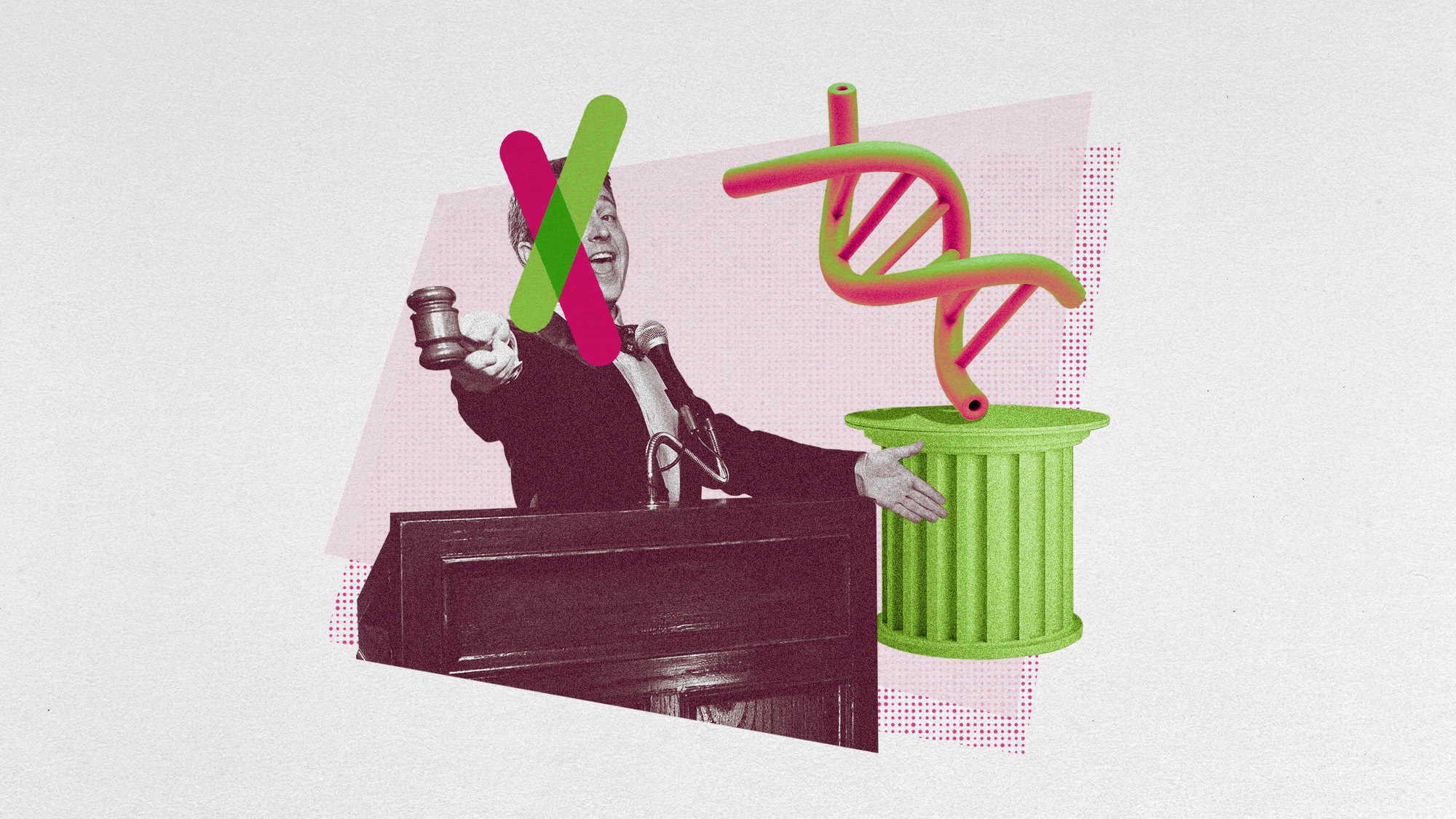23andMe: will customers' DNA go up for sale?
Genetic testing company's financial woes creates concerns around personal data it holds

A free daily email with the biggest news stories of the day – and the best features from TheWeek.com
You are now subscribed
Your newsletter sign-up was successful
Millions of people have spat into test tubes for ancestry companies but now there are questions being asked about what might happen to their DNA.
After a data breach, a sinking share price and mass board resignations, the chief executive of the Californian personal genomics firm 23andMe said she would consider selling the business. That would mean the DNA of its 15 million customers could also be up for grabs. Anne Wojcicki, who owns 49% of the voting stock, has since ruled out a third-party takeover as she considers the best path to take for the company.
'A saleable asset'
Shares in 23andMe are "worth pennies", said NPR last Thursday. Its valuation has "plummeted 99% from its $6 billion peak shortly after the company went public in 2021". And its revenue for the first quarter of the 2025 fiscal year came to $40 million, about 34% down on the same period the year before.
The Week
Escape your echo chamber. Get the facts behind the news, plus analysis from multiple perspectives.

Sign up for The Week's Free Newsletters
From our morning news briefing to a weekly Good News Newsletter, get the best of The Week delivered directly to your inbox.
From our morning news briefing to a weekly Good News Newsletter, get the best of The Week delivered directly to your inbox.
Seven board members resigned, expressing weariness with the company's direction, and chief executive Wojcicki said she would take the company private.
The business isn't bound by the US health privacy law like a GPs' practice, said The Atlantic, and its privacy policies "make clear that in the event of a merger or an acquisition, customer information is a saleable asset".
Trolling genomes
Potential buyers "may have very different ideas about how to use the company's DNA data to raise the company's bottom line", said The Atlantic. For example, parties that "might take an obvious interest in the secrets of Americans' genomes" include insurers, who "would probably like to know about any genetic predispositions that might make you more expensive to them".
Information about your ethnicity "can also be sensitive", and that's encoded in your genome. "Imagine drugmakers trolling your genome" to find out what conditions you're at risk for and then "targeting you with ads for drugs to treat them".
A free daily email with the biggest news stories of the day – and the best features from TheWeek.com
Although the company insists that it is committed to customer privacy, people who have submitted tests to discover ancestry lines or for healthcare research can "potentially leave their information vulnerable to threat actors", said The New York Times.
Genome structures are "complex", and "the path to unearthing sensitive information from them" is still "far from simple". Although "superficially, there might be a comforting aspect to that", Mark Gerstein, a professor at Yale University, told the paper, it is difficult to predict what people might be able to glean in the future.
Time to delete?
This is not the first time that questions over privacy have cast a shadow over the company. In a data breach last December hackers gained access to the personal information of nearly 7 million profiles by recycling old passwords that 23andMe customers had used on other sites that had been compromised.
The company admitted that by accessing those accounts, hackers were then able to find their way into "a significant number of files containing profile information about other users' ancestry". So "if you ever used 23andMe", you "might want to consider deleting your data while you still can", said PC Mag.
The company, said Venture Beat, has become a "cautionary tale" of how there are "immediate and lasting impacts" for any organisation that ignores the importance of cybersecurity.
Chas Newkey-Burden has been part of The Week Digital team for more than a decade and a journalist for 25 years, starting out on the irreverent football weekly 90 Minutes, before moving to lifestyle magazines Loaded and Attitude. He was a columnist for The Big Issue and landed a world exclusive with David Beckham that became the weekly magazine’s bestselling issue. He now writes regularly for The Guardian, The Telegraph, The Independent, Metro, FourFourTwo and the i new site. He is also the author of a number of non-fiction books.